Camille Claudel in 5 Sculptures
Camille Claudel was an outstanding 19th-century sculptress, a pupil and assistant to Auguste Rodin, and an artist suffering from mental problems. She...
Valeria Kumekina 24 July 2024
4 November 2023 min Read
The Story of Art Without Men by Katy Hessel was published by Hutchinson Heinemann in 2022. Open this book and prepare to have your understanding of art history turned on its head. Katy Hessel opens our eyes to so many female artists and art forms previously overlooked or dismissed. This brilliant book places women front and center; the results are magnificent!

Katy Hessel, the author of The Story of Art Without Men, 2022. Author’s website
Katy Hessel is an art historian, curator, broadcaster, and the creator of @thegreatwomenartists Instagram account, with over 372,000 followers. In The Story of Art Without Men, she re-imagines the history of art, but literally without the men! Hessel was inspired in part by a famous 1971 essay by art historian Linda Nochlin, Why Have There Been No Great Women Artists? Finally, women artists get a chance to be seen, appreciated, and respected.

Plautilla Nelli, The Last Supper, c. 1550, Basilica of Santa Maria Novella, Florence, Italy.
We start in the 16th century with Caterina de Vigri, Prosperzia de Rossi, and Plautilla Nelli. A fascinating story surrounds Nelli, who was a Dominican nun. She was the first known Florentine female Renaissance artist and set up her own all-female workshop. Unusually, she even gets a mention in Giorgio Vasari’s Lives of the Artists. Vasari, who wrote what is considered the most famous of all early art biographies, did not seem to appreciate female artists and excluded them from his many editions. Starting out as a miniaturist, Plautilla Nelli later produced large-scale religious altarpieces, very rare for a woman of her time.
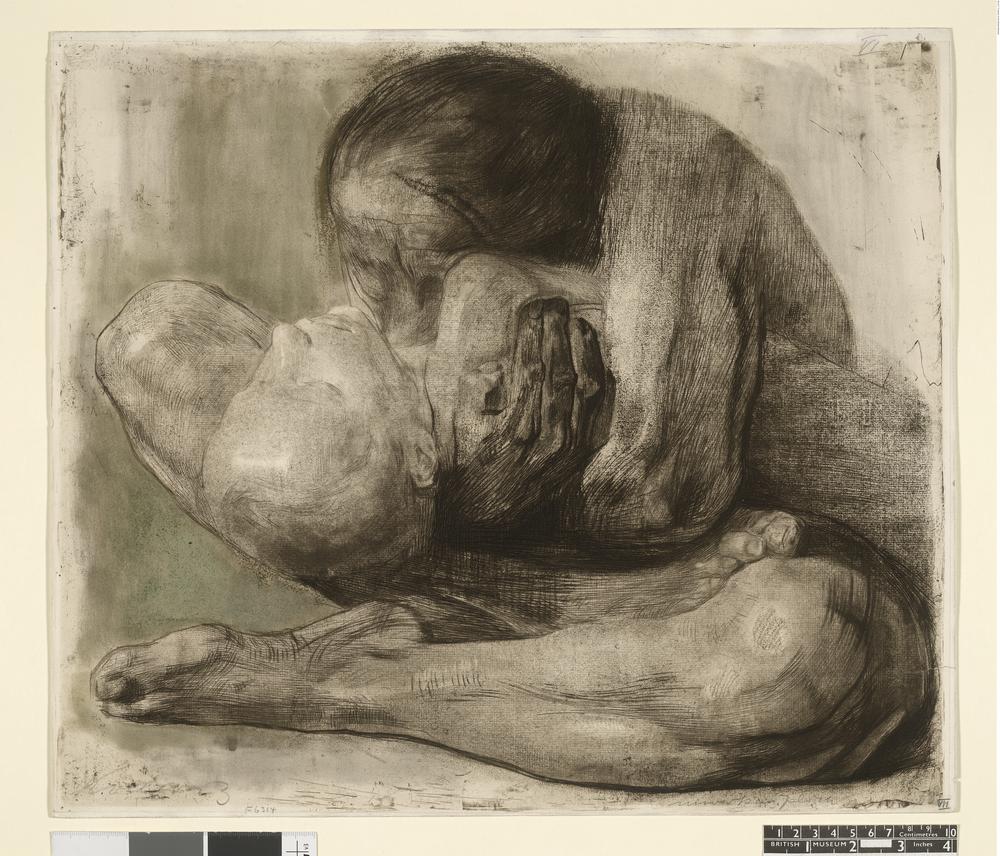
Kathe Kollwitz, Woman with Dead Child, 1903, British Museum, London, UK.
Of course, here at DailyArt Magazine we are passionate about putting the spotlight on female artists. It is heartening to see that we have written about many of Hessel’s choices: Sofonisba Anguissola, Judith Leyster, Elisabetta Sirani, Lavinia Fontana, and Artemisia Gentileschi from early modern art history. And then on to fabulous women like Impressionist Mary Cassatt and Pre-Raphaelite Evelyn De Morgan. Also, in the modern era, we have looked at pioneers like American photographer Lee Miller, French painter Suzanne Valadon, German Käthe Kollwitz and Welsh Gwen John. Not forgetting trouble-makers like Tracey Emin, Paula Rego and Marina Abramovic!
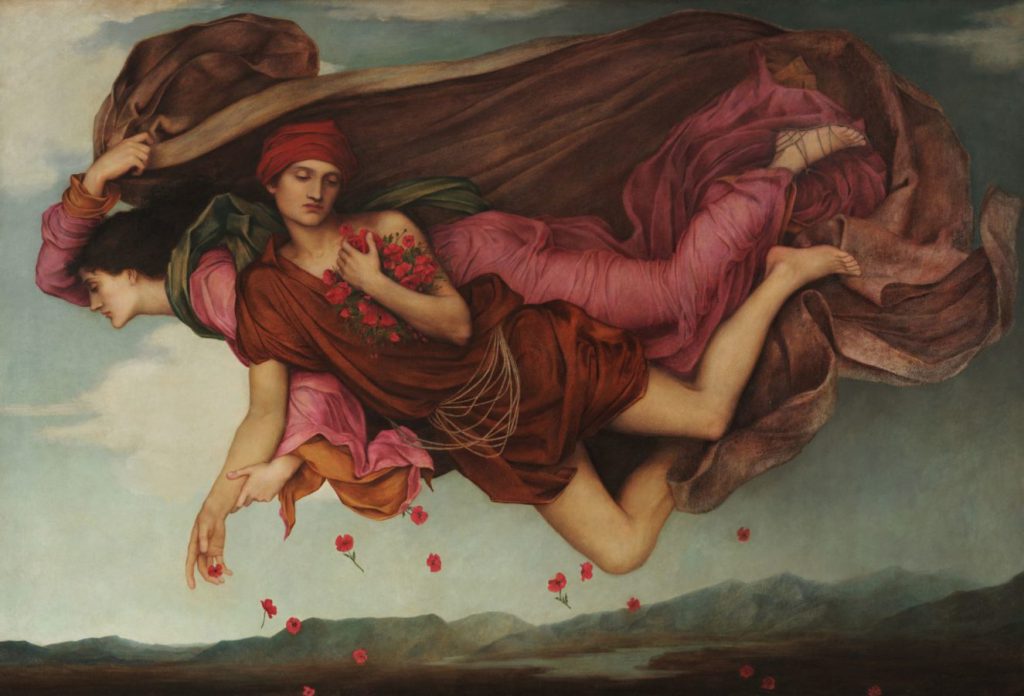
Evelyn De Morgan, Night And Sleep, 1878, De Morgan Foundation, Guildford, UK.
Katy Hessel has rightly been highly praised for her work. Bookseller Waterstones champion the book as a “must-have” for any book lover or art lover, calling it a “feast for the senses as well as the mind”. In fact they made it their Book of the Year for 2022. The Times Literary Supplement calls the book “sumptuous”. The Times calls for the book to be on the reading list of every A-level and university art history course as well as on the front table of every museum and gallery shop. The Observer newspaper states that Katy Hessel has created a “beautifully written corrective, which should become a founding text in the history of art by women”. The New Statesman reminds us that the women in Hessel’s book are “every bit as worthy of attention as their male peers”. Meanwhile, British artist Tracey Emin proclaimed about Katy Hessel’s work that “it will change the history of art”.
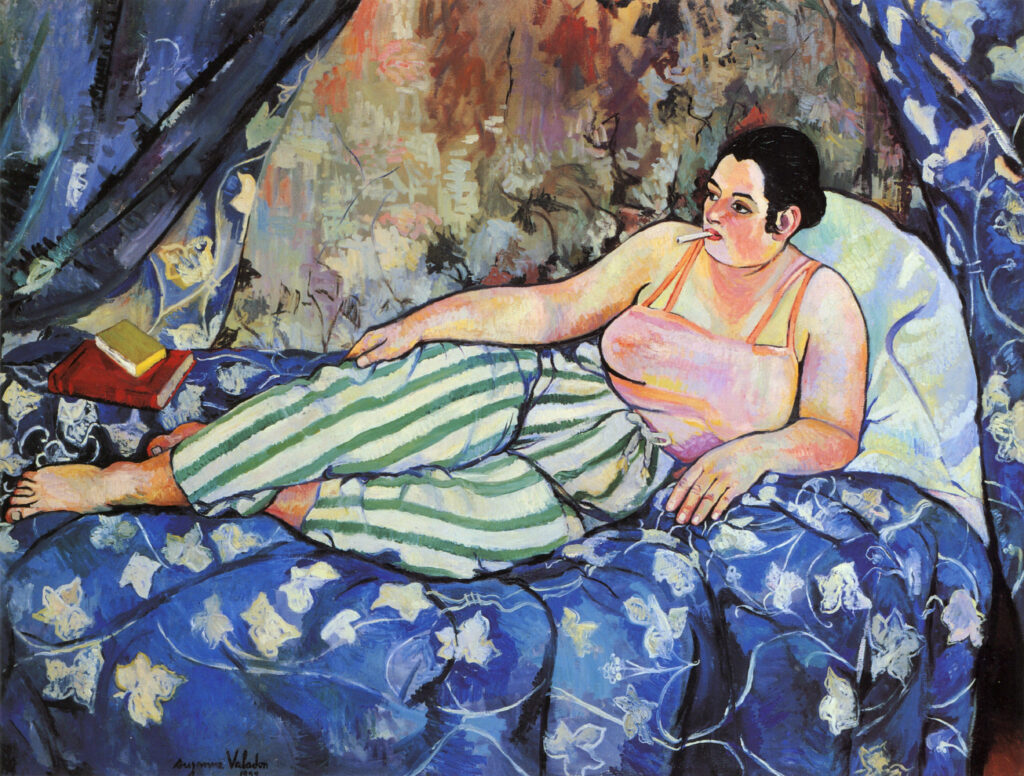
Suzanne Valadon, The Blue Room, 1923, Centre Pompidou-Musée National d’Art Moderne/CCI, Paris, France.
Although Hessel makes clear that there is no one linear narrative for art, she does provide a very full timeline, which is useful and interesting for both an art student and a casual reader. Choose your favorite art period or style, and revel in sumptuous full color images and illuminating stories. Young people will come to the book and wonder how we have failed to redress the balance for so long. Older readers will marvel at the breadth and scope of the works described, while wondering how they missed all these women artists for so many years. But at last, in The Story of Art Without Men, we hear the clarion call of the revolution loud and clear. There is no going back now – onwards and upwards!
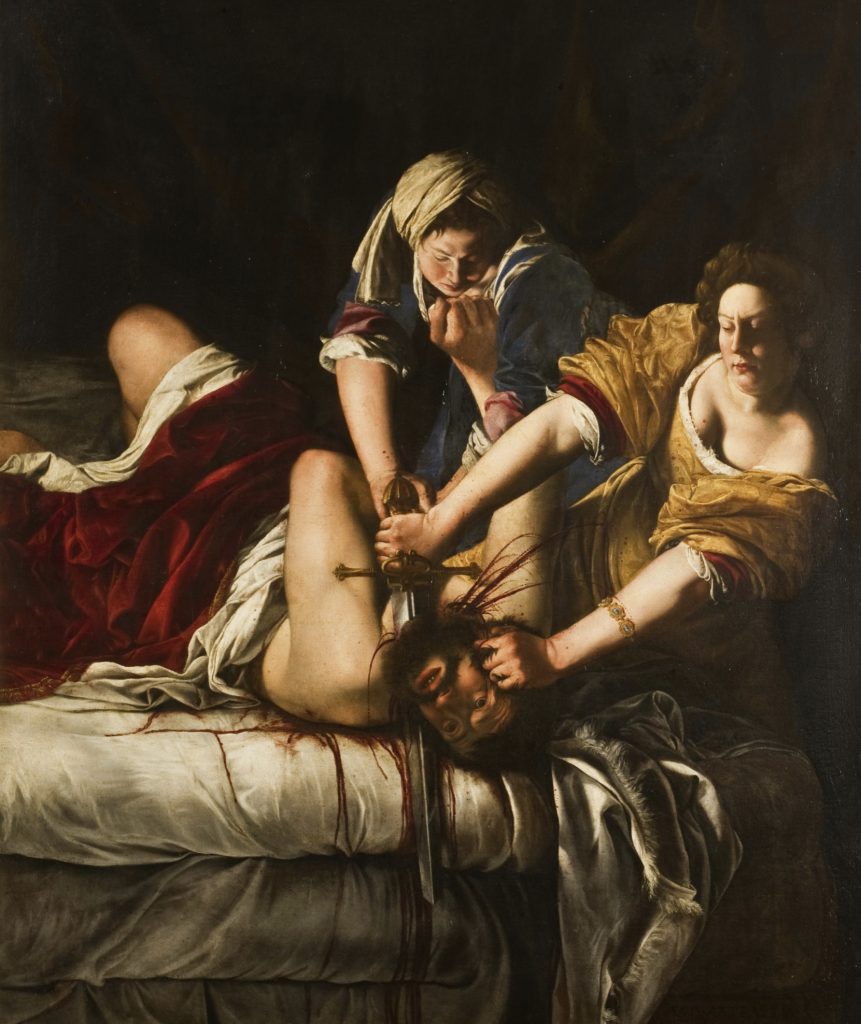
Artemisia Gentileschi, Judith Beheading Holofernes, c1620, Uffizi, Florence, Italy.
Certainly, museums, galleries, curators, art dealers, and critics should consume this book cover to cover because it is these people who are actively responsible for (or complicit in) the exclusion of women artists. Male artists may want to have a browse too, for if they do not stand with their female counterparts, then they stand against them.
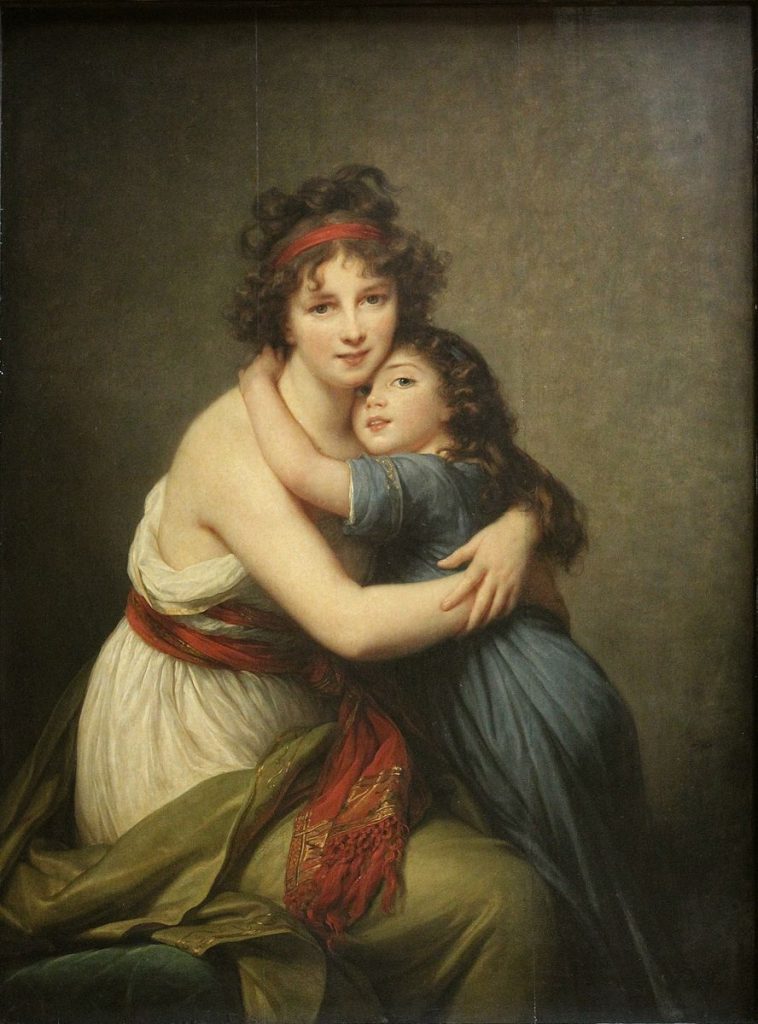
Élisabeth-Louise Vigée Le Brun, Self-portrait With Her Daughter, 1789, Louvre, Paris, France.
I sat in an art history lecture just this week in which a white, middle-class, middle-aged man claimed that “equality” has been pushed too far in the art world. His opinion was that women have it too easy now and are given preference over male artists purely based on gender, not on the quality of their work. I suspect his own failure to become one of the great and good of the art world drove him to that irritable and wholly inaccurate statement. I should buy him this book perhaps?
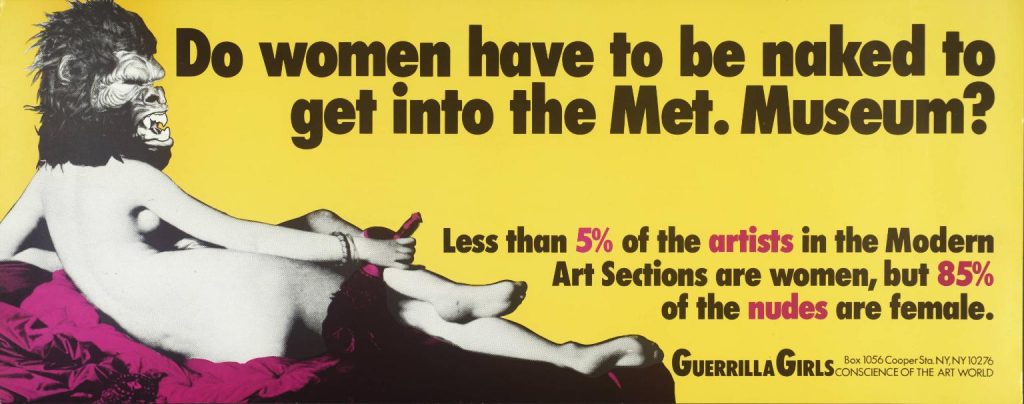
Guerrilla Girls, Do Women Have To Be Naked To Get Into the Met. Museum?, 1989, Tate, London, UK.
Let us not forget that the first edition of E. H. Gombrich’s supposedly definitive The Story of Art featured not a single female artist in its first edition in 1950. By its 16th edition in the late 1960s, it included ONE, yes just one woman. Furthermore, as the Guerrilla Girls pointed out in 1989, less than 5% of the artists in the Met Museum in New York were women. Yet 85% of the nudes on display were female. Their humorous question, on billboard images posted across New York, was “Do Women Have To Be Naked To get Into The Met Museum?”
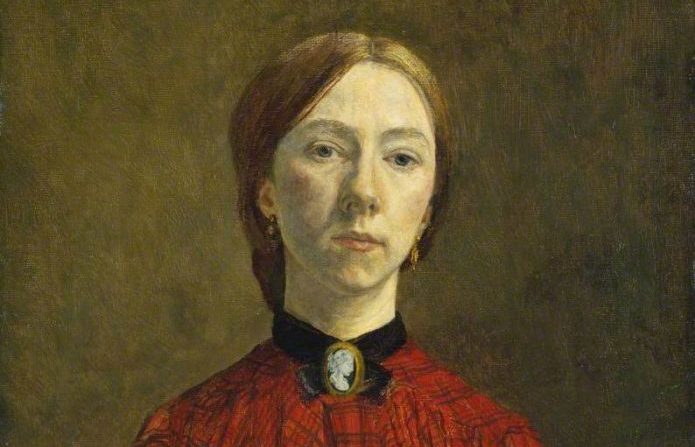
Gwen John, Self-Portrait, 1902, Tate, London, UK. Detail.
Full of research, but also an easy read, you can use this book as a reference tool, or something to dip in and out of at leisure. The writing style is intimate, but Hessel still manages to cover all significant artistic developments from the 16th century to the 1990s. This isn’t a definitive volume – how could it be? One volume cannot correct centuries of misogyny and exclusion. However, as as start, it is very impressive. Hessel shows us, with proof, that innovative women of genius have always been present in art. Her subjects aren’t wives, children, followers, or muses – they were the real deal: artists in their own right.
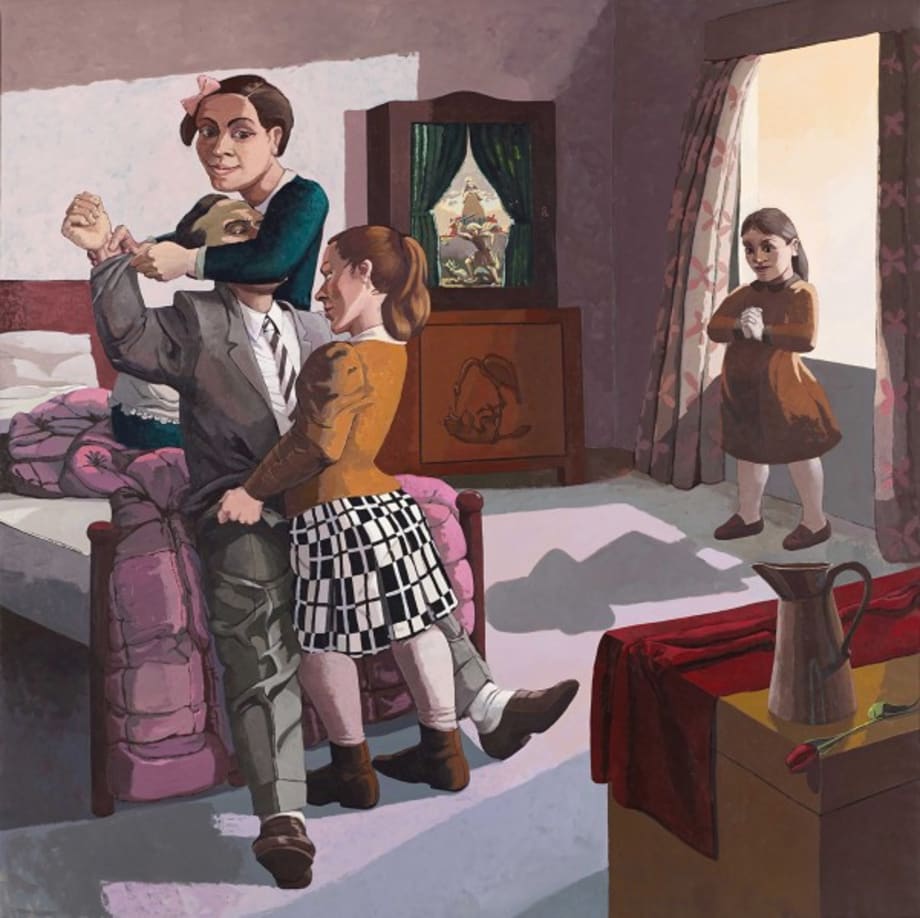
Paula Rego, The Family, 1988, Saatchi Galleries, London, UK.
Rich with detail, and fascinating in its unraveling of the traditional art historical narrative, this unapologetic, brilliant work is a hefty punch in the gut for the patriarchy of the art world. Women deserve their place in the canon of art history. Beware patriarchs, the history of art is being recalibrated. Katy Hessel is coming for you, and she is taking no prisoners!
DailyArt Magazine needs your support. Every contribution, however big or small, is very valuable for our future. Thanks to it, we will be able to sustain and grow the Magazine. Thank you for your help!